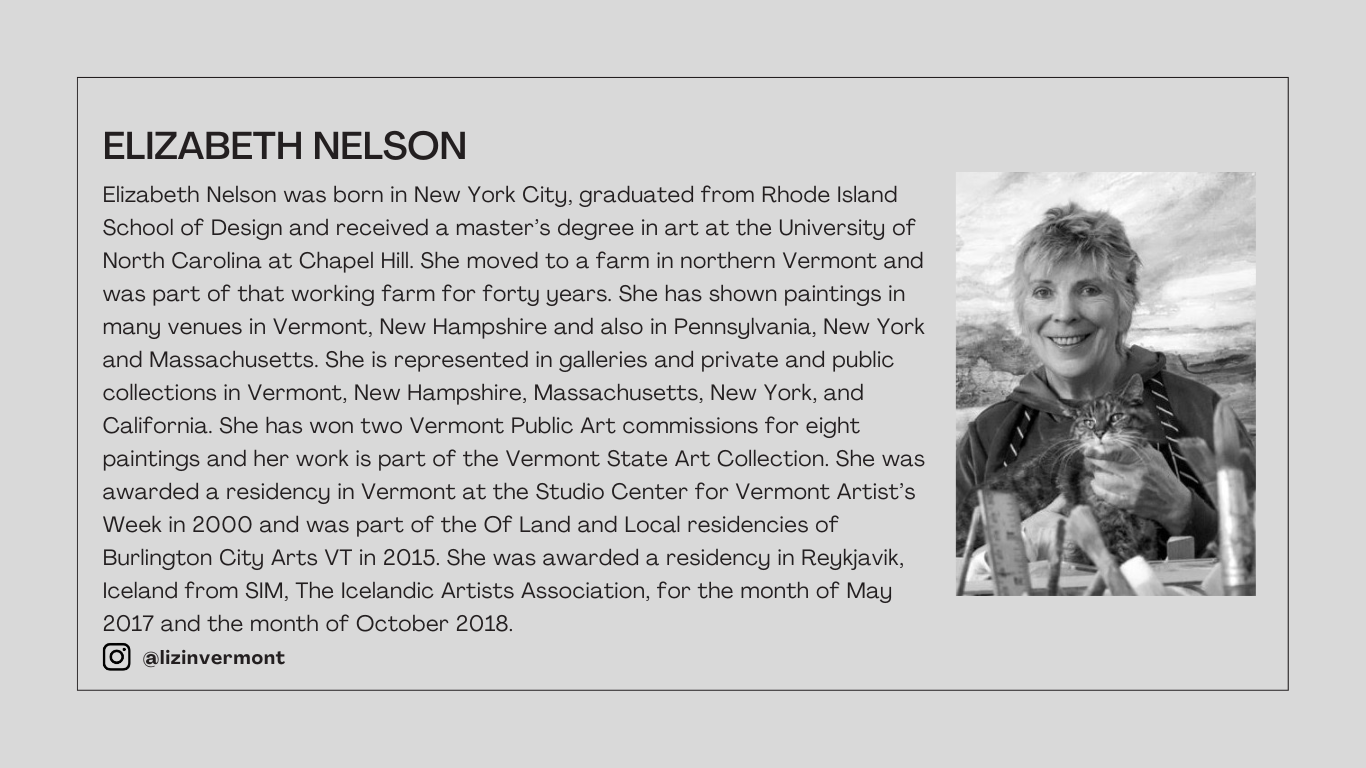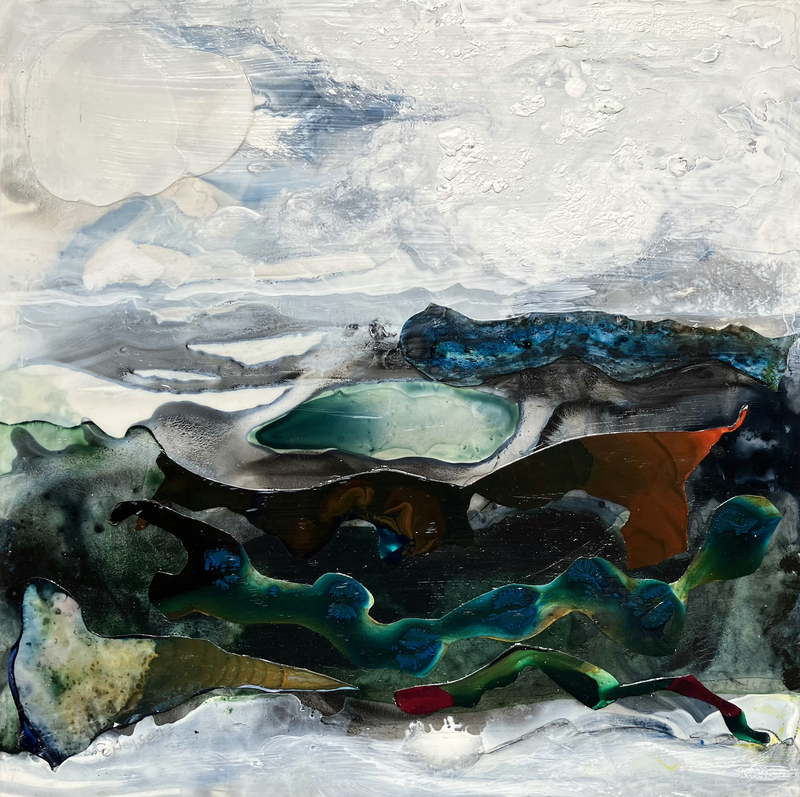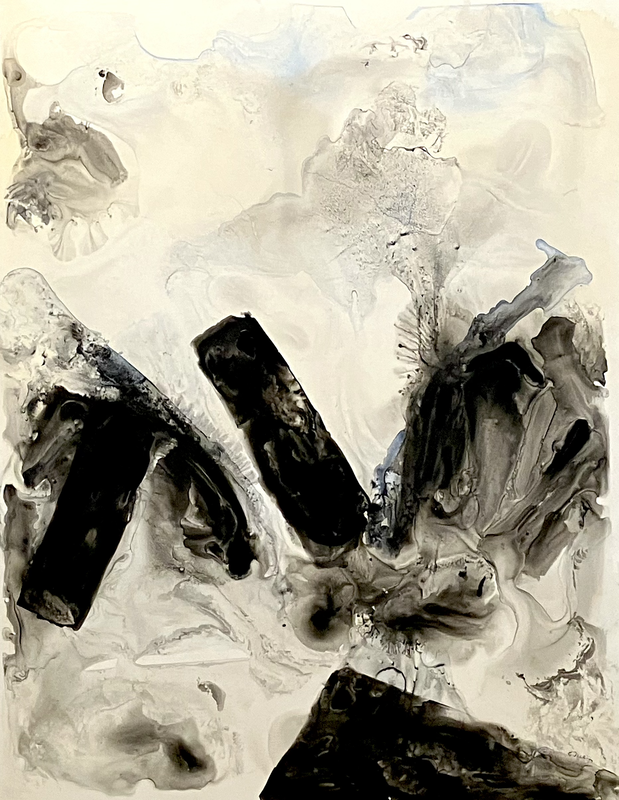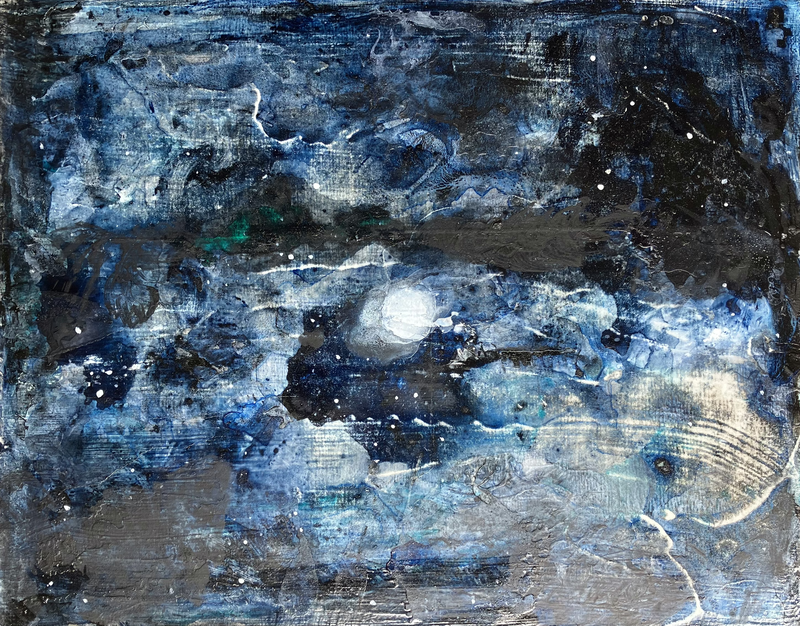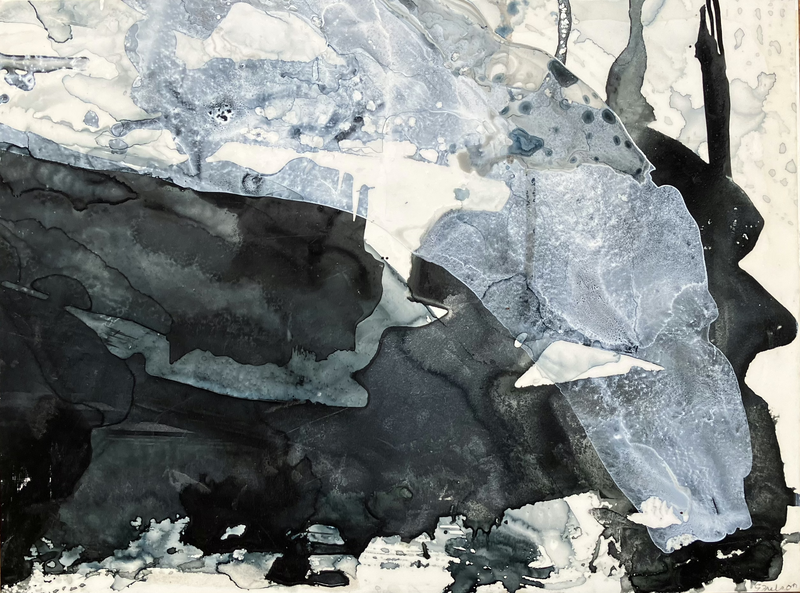Iceland 2017 - 2022
After a short visit to Iceland in 2012, I experienced an irresistible magnetic pull, a need to be there again for a longer time to paint what I saw and felt of the landscape and weather; to be a part of the life there. Five years later, I was able to return to Iceland in 2017 for the month of May, and then again in October 2018 as a resident in SĺM, the Association of Icelandic Artists, an organization that supports the cultural exchange of visual artists with all countries of the world. As a result of that experience my painting has become a collaboration between the surface of the painting, the paint and with me, the painter. Sometimes exactly what I thought I was painting remained as I had painted it. But quite often when the paint dried the image had changed. Instead of being the solitary maker, the paint and the surface had their say too, and we continued on together to explore the image evolving with each level of the painting simultaneously revealing and camouflaging -- perhaps reflecting the changing weather of Iceland, or the changing stability of the earth underneath, or my deepening shifts of perception.
After a short visit to Iceland in 2012, I experienced an irresistible magnetic pull, a need to be there again for a longer time to paint what I saw and felt of the landscape and weather; to be a part of the life there. Five years later, I was able to return to Iceland in 2017 for the month of May, and then again in October 2018 as a resident in SĺM, the Association of Icelandic Artists, an organization that supports the cultural exchange of visual artists with all countries of the world. As a result of that experience my painting has become a collaboration between the surface of the painting, the paint and with me, the painter. Sometimes exactly what I thought I was painting remained as I had painted it. But quite often when the paint dried the image had changed. Instead of being the solitary maker, the paint and the surface had their say too, and we continued on together to explore the image evolving with each level of the painting simultaneously revealing and camouflaging -- perhaps reflecting the changing weather of Iceland, or the changing stability of the earth underneath, or my deepening shifts of perception.
